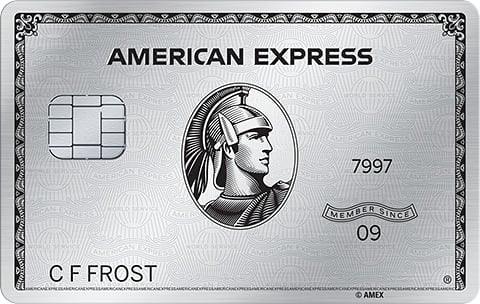How to Find the Best Travel Insurance
Here's what you need to know to get started when shopping for travel insurance.

Many, or all, of the products featured on this page are from our advertising partners who compensate us when you take certain actions on our website or click to take an action on their website. However, this does not influence our evaluations. Our opinions are our own. Here is a list of our partners and here's how we make money.
Nerdy takeaways
- Travel insurance can cover medical expenses, emergencies, trip interruptions, baggage, rental cars and more.
- Cost is affected by trip length, pre-existing medical conditions, depth of coverage, your age and add-ons.
- You can get it through credit cards or third-party companies, & can shop on travel insurance comparison sites.
- Before buying, evaluate risks, know existing coverage, obtain quotes online and review policy details warily.
- Skip it if you buy flexible airfare and hotels, already have coverage or only book refundable activities.
Booking travel always carries some degree of uncertainty. Travel insurance provides a safety net so you can step out with confidence. You may not need travel insurance for inexpensive trips, but it can provide a sense of security when you prepay for pricey reservations, a big international trip or travel during cold and flu season, which can be unpredictable.
According to data from insurance comparison site Squaremouth, travelers spent an average of $414 for comprehensive coverage, compared to $92 for medical-only policies from June 2024 to June 2025. Comprehensive plans typically cost between 4% and 10% of the insured trip cost.
Since that price tag is no small amount, it helps to know how to shop smart for travel insurance. Here's how to find the right travel insurance plan for you and your next adventure.
What travel insurance covers
Depending on the type of coverage you’re looking for, the chart below will help you determine what to look for when selecting a policy:
| If you want: | Include this in your travel insurance policy: |
|---|---|
| Payment of medical expenses if you get sick or injured on a trip and need emergency care that’s not covered by your regular health insurance plan. | Travel medical plan |
| To be taken to the nearest hospital or flown home if necessary when you're injured or you get sick on a trip. | Emergency evacuation and repatriation |
| Reimbursement of nonrefundable reservations if you get sick and have to cancel or end a trip early; reimbursement if you incur extra costs (e.g., lodging) due to a delay by the airline or other carrier. | Trip cancellation, interruption and delay |
| Reimbursement of nonrefundable reservations no matter why you cancel a trip. | Cancel For Any Reason coverage |
| Payment for lost, stolen or damaged baggage. | Baggage and personal belongings |
| Help finding a lawyer abroad. | 24-hour assistance services |
| Payment for rental car damage. | Car rental collision insurance |
Depending on the policy, travel insurance reimburses you or offers services when something goes awry. There’s even coverage for the worst-case scenario: if you die in an accident while traveling. Accidental death coverage pays your beneficiary a lump sum in that case.
Before you buy, take a little time to get familiar with different types of travel insurance products, how it’s priced, and what it covers and excludes. Usually, the more thorough the coverage, the more it will cost.
How much does travel insurance cost?
Travel insurance costs vary depending on:
- Length and cost of the trip: The longer and more expensive the trip, the higher the policy cost.
- Cost of local health care: High health-care costs in your destination can drive up the price of trip insurance.
- Medical conditions you want covered: Conditions you already have will increase the cost of travel insurance coverage.
- Amount and breadth of coverage: The more risks a policy covers, the more it will cost.
- Your age: Generally the older you are, the higher the price.
- Any optional supplement you add to your policy: Cancel For Any Reason, Interrupt For Any Reason and more.
Keep these factors in mind when considering different travel insurance options.

By signing up, you will receive newsletters and promotional content and agree to our Terms of Use and acknowledge the data practices in our Privacy Policy. You may unsubscribe at any time.
Types of travel insurance
You’ll find a wide selection of travel protection plans when you shop for a policy.
Typically, travel insurance is sold as a package, known as a comprehensive plan, which includes a variety of coverage.
Here are seven of the most common types of travel insurance:
Travel medical insurance
These plans provide health insurance while you’re away from home. Although in some ways these policies work like traditional health plans, generally you cannot use travel health insurance for routine medical events. For example, a routine medical checkup is usually not covered. In addition, these policies often include limitations on coverage and exclusions for pre-existing conditions.
Although most travel insurance plans cover many recreational activities, such as skiing and horseback riding, they often exclude adventure sports, such as skydiving or parasailing, or competition in organized sporting events. You may need to buy a special travel policy designed for adventure or competitive sports.
International travel insurance
Most likely, your U.S.-based medical insurance will not work while you’re traveling internationally, and Medicare does not provide any coverage once you leave the United States outside of a few very specific exemptions. If you plan on traveling abroad, purchasing travel medical insurance could make a lot of sense.
Trip cancellation, interruption and delay
Trip cancellation coverage reimburses you for prepaid, nonrefundable expenses if the tour operator goes out of business or you have to cancel the trip for one of the covered reasons outlined in the policy, such as:
- Your own illness.
- The illness or death of a family member who’s not traveling with you.
- Natural disasters.
Trip interruption insurance covers the nonrefundable cost of the unused portion of the trip if it is interrupted due to a reason outlined in the policy.
Trip delay coverage reimburses you for expenses such as lodging and meals if you’re delayed during a trip (e.g., your flight gets canceled due to weather).
Many package policies cover all three. These policies are different from the cancellation waivers that cruise lines and tour operators offer, the Insurance Information Institute says. Waivers are cheap, ranging from $40 to $60, and often include restrictions. For example, according to the institute, waivers might not refund your money if you cancel immediately before departure. Waivers are technically not insurance policies.
Some companies offer additional layers of coverage at extra cost. Cancel For Any Reason coverage will reimburse a large part of the trip cost, no matter why you back out. And some companies let you pay extra to cover pre-existing conditions if you cancel for medical reasons.
🤓 Nerdy Tip
Some insurers and comparison sites let you customize a policy by choosing types of coverage a la carte. That can be especially helpful if you already have some coverage through other means, like a travel credit card. Baggage and personal belongings
Lost luggage insurance reimburses you for baggage and personal belongings that are lost, stolen or damaged during the trip. Some plans also reimburse you for extra expenses if you experience a baggage delay for more than a certain period, such as 12 hours.
Your renters or homeowners insurance may cover personal belongings while you are traveling. It’s best to review your homeowners insurance policy to determine the level of coverage it provides so you do not end up paying for a benefit you already have.
» Learn more: Baggage insurance explained
Emergency medical assistance, evacuation and repatriation
This coverage pays medical expenses if you get sick or injured on a trip. Medical evacuation coverage pays for transporting you to the nearest hospital, and medical repatriation pays for flying you to your home country.
24-hour assistance
This service is included with many package plans. The insurer provides a 24-hour hotline that you can call when you need help, such as booking a flight after a missed connection, finding lost luggage, or locating a doctor or lawyer.
🤓 Nerdy Tip
Generally, travel insurance companies do not cover sports or any activity that can be deemed risky. If you’re thinking of incorporating adventurous activities into your vacation, choose a plan that includes adventure sports coverage. Most travel insurers cover a wide array of services, but the specific options vary. Some plans include concierge services, providing help with restaurant referrals, tee time reservations and more. Many services also offer information before the trip, such as required vaccinations. The only way to know what’s included is to read the policy.
» Learn more: Should you insure your cruise?
Accidental death and dismemberment insurance
This coverage pays a lump sum to your beneficiary, such as a family member, if you die in an accident while on the trip. Accidental death and dismemberment insurance policies also pay a portion of the sum to you if you lose a hand, foot, limb, eyesight, speech or hearing. Some plans apply only to accidental death in a plane.
🤓 Nerdy Tip
This coverage may be duplicative if you already have sufficient life insurance, which pays out whether you die in an accident or from an illness. You may also already have accidental death and dismemberment insurance through work, so it's best to check your policies to ensure you’re not overpaying. » Learn more: NerdWallet's guide to life insurance
Rental car coverage
Rental car insurance pays for repairing your rental car if it’s damaged in a wreck, by vandals or in a natural disaster. The coverage doesn't include liability insurance, which pays for damage to other vehicles or for the medical treatment of others if you cause an accident and are held responsible.
Ask your car insurance company whether your policy will cover you when renting cars on the trip. U.S. car insurance policies generally don’t cover you when driving in other countries, except Canada.
Car insurance requirements are complex because they vary among countries. You can usually purchase liability insurance from the rental car company. Learn about car insurance requirements by searching for auto insurance by country on the U.S. Embassy website.
» Learn more: Best credit cards for rental car coverage
A note about single vs. long-term policies
Single trip insurance plans are a great option for those going on a single trip for a specific length of time (e.g., a two-week vacation) and then returning home. The price of the policy is usually determined by the cost of the trip.
Long-term travel policies cover you for multiple trips, but there are limitations to how long you can be away from home, if you can return home during your travels and how many trips you can take. In addition, trip cancellation and interruption coverage is either not offered or capped at a dollar amount that can be significantly below the total cost of all the trips taken during the covered period.
Long-term travel insurance plans — often called 'multi-trip' or 'annual travel insurance' — are a suitable option for those who travel often and are satisfied with the amount of trip cancellation coverage for all the trips they take over the duration of the policy.
» Learn more: How annual (multi-trip) travel insurance works
How to get travel insurance
There are several ways to obtain travel insurance. Here are the pros and cons of your different options.
Credit cards
Some credit cards offer trip cancellation and rental car insurance if you use the card to book the trip or car.
🤓 Nerdy Tip
When you book a trip with your credit card, depending on the card you use, you may already receive trip cancellation and interruption coverage. » Learn more: 10 credit cards that provide travel insurance
Here are a handful of credit cards that offer varying levels of travel insurance coverage for purchases made with the card.
Cards with travel insurance benefits
Annual fee
- $95
- $795
- $895
- $95
Travel protections (not a comprehensive list)
• Trip delay: Up to $500 per ticket for delays more than 12 hours.
• Trip cancellation: Up to $10,000 per person and $20,000 per trip. Maximum benefit of $40,000 per 12-month period.
• Trip interruption: Up to $10,000 per person and $20,000 per trip. Maximum benefit of $40,000 per 12-month period.
• Baggage delay: Up to $100 per day for five days.
• Lost luggage: Up to $3,000 per passenger.
• Travel accident: Up to $500,000.
• Rental car insurance: Up to $75,000.
• Trip delay: Up to $500 per ticket for delays more than 6 hours.
• Trip cancellation: Up to $10,000 per person and $20,000 per trip. Maximum benefit of $40,000 per 12-month period.
• Trip interruption: Up to $10,000 per person and $20,000 per trip. Maximum benefit of $40,000 per 12-month period.
• Baggage delay: Up to $100 per day for five days.
• Lost luggage: Up to $3,000 per passenger.
• Travel accident: Up to $1 million.
• Rental car insurance: Up to the actual cash value of the car.
• Trip delay: Up to $500 per trip for delays more than 6 hours.
• Trip cancellation: Up to $10,000 per trip. Maximum benefit of $20,000 per 12-month period.
• Trip interruption: Up to $10,000 per trip. Maximum benefit of $20,000 per 12-month period.
• Lost luggage: Up to $3,000 per passenger.
• Travel accident: Up to $500,000.
• Rental car insurance: Up to $75,000.
Terms apply.
• Trip delay: Up to $500 per ticket for delays more than 12 hours.
• Trip cancellation: Up to $10,000 per trip. Maximum benefit of $20,000 per 12-month period.
• Trip interruption: Up to $10,000 per trip. Maximum benefit of $20,000 per 12-month period.
• Baggage delay: Up to $100 per day for five days.
• Lost luggage: Up to $3,000 per passenger.
• Travel accident: Up to $500,000.
• Rental car insurance: Up to the actual cash value of the car.
Learn more
Pros: Coverage is free.
Cons: You can’t customize the insurance to meet your needs. Most credit cards offer secondary car rental insurance, which pays for the costs not covered by your regular car insurance plan.
Travel agents and travel reservation sites
You can buy travel insurance when you book your flight, hotel and car rental.
Pros: Buying is as quick and easy as clicking “yes” when you book reservations. Coverage is inexpensive.
Cons: You can’t customize the coverage.
Travel insurance comparison sites
You can compare different policies and review quotes at once based on the trip search criteria you’ve input into the search form. Examples include marketplaces like Squaremouth or TravelInsurance.com.
Pros: You can choose a policy that fits your needs and compare policies and pricing in one place.
Cons: Comparing multiple policies takes time.
Travel insurance companies
You can purchase travel insurance directly from an insurance provider.
Pros: You can choose a policy that fits your needs. Many travel insurer websites also offer information to help you understand the coverage.
Cons: You’ll need to go to multiple websites to compare coverage and pricing.
» Learn more: The best travel insurance companies right now
What to look for in travel insurance
Keep these tips in mind when you’re considering a trip insurance policy.
- Evaluate the financial risks you face when traveling. Can you bear those costs yourself, or do you want insurance?
- Examine what coverage you already have. Does your credit card offer travel insurance? Do you have renters or homeowners insurance to cover belongings? What is the deductible? Will your health plan cover you in all the locations where you travel?
- Get quotes for trip insurance online. Choose a package of the benefits you need and compare prices for similar coverage among carriers.
- Narrow your choices and then read the policy fine print. It's important to understand what’s covered, what’s excluded and the limits on coverage. You may find that the lowest-priced policy is too restrictive and that paying a little more gets you the coverage you need. Or you might find that the cheapest, most basic policy fits the bill.
Which insurance company is best for travel insurance?
Whether you’re looking for an international travel insurance plan, emergency medical care or a policy that includes extreme sports, these providers can meet your needs.
Here are some of NerdWallet's picks for the best travel insurance companies:
- IMG.
- John Hancock Travel.
When to skip travel insurance
There are a few scenarios when spending extra on travel insurance doesn't really make sense, like:
- You booked flexible airline tickets.
- Your hotel room has a good cancellation policy.
- You're satisfied with the coverage already included in your credit card.
- You haven't booked any nonrefundable activities.
» Learn more: When you don't need travel insurance
Travel insurance recapped
Unpredictability is one of the mind-opening joys of travel, but travel insurance should contain no surprises. The time you spend to understand your options will be well worth the peace of mind as you embark on your next adventure.
Whether you’re seeking a single or a long-term policy, each travel insurance option offers different strengths and weaknesses. Choosing the right policy depends on your trip needs, your budget and how important various benefits are to you.
Keep reading
If you want to dig in deeper to world of travel insurance, these resources will point you in the right direction.
To view rates and fees of the American Express Platinum Card®, see this page.
Insurance Benefit: Trip Delay Insurance
- Up to $500 per Covered Trip that is delayed for more than 6 hours; and 2 claims per Eligible Card per 12 consecutive month period.
- Eligibility and Benefit level varies by Card. Terms, Conditions and Limitations Apply.
- Please visit americanexpress.com/benefitsguide for more details.
- Underwritten by New Hampshire Insurance Company, an AIG Company.
Insurance Benefit: Trip Cancellation and Interruption Insurance
- The maximum benefit amount for Trip Cancellation and Interruption Insurance is $10,000 per Covered Trip and $20,000 per Eligible Card per 12 consecutive month period.
- Eligibility and Benefit level varies by Card. Terms, Conditions and Limitations Apply.
- Please visit americanexpress.com/benefitsguide for more details.
- Underwritten by New Hampshire Insurance Company, an AIG Company.
Insurance Benefit: Baggage Insurance Plan
- Baggage Insurance Plan coverage can be in effect for Covered Persons for eligible lost, damaged, or stolen Baggage during their travel on a Common Carrier Vehicle (e.g., plane, train, ship, or bus) when the Entire Fare for a ticket for the trip (one-way or round-trip) is charged to an Eligible Card. Coverage can be provided for up to $2,000 for checked Baggage and up to a combined maximum of $3,000 for checked and carry-on Baggage, in excess of coverage provided by the Common Carrier. The coverage is also subject to a $3,000 aggregate limit per Covered Trip. For New York State residents, there is a $2,000 per bag/suitcase limit for each Covered Person with a $10,000 aggregate maximum for all Covered Persons per Covered Trip.
- Eligibility and Benefit level varies by Card. Terms, Conditions and Limitations Apply.
- Please visit americanexpress.com/benefitsguide for more details.
- Underwritten by AMEX Assurance Company.
Insurance Benefit: Car Rental Loss & Damage Insurance
- Car Rental Loss and Damage Insurance can provide coverage up to $75,000 for theft of or damage to most rental vehicles when you use your eligible Card to reserve and pay for the entire eligible vehicle rental and decline the collision damage waiver or similar option offered by the Commercial Car Rental Company. This product provides secondary coverage and does not include liability coverage. Not all vehicle types or rentals are covered. Geographic restrictions apply.
- Eligibility and Benefit level varies by Card. Terms, Conditions and Limitations Apply.
- Please visit americanexpress.com/benefitsguide for more details.
- Underwritten by AMEX Assurance Company. Car Rental Loss or Damage Coverage is offered through American Express Travel Related Services Company, Inc.
How to maximize your rewards
You want a travel credit card that prioritizes what’s important to you. Here are some of the best travel credit cards of 2026:
- Flexibility, point transfers and a large bonus: Chase Sapphire Preferred® Card
- No annual fee: Wells Fargo Autograph® Card
- Flat-rate travel rewards: Capital One Venture Rewards Credit Card
- Bonus travel rewards and high-end perks: Chase Sapphire Reserve®
- Luxury perks: American Express Platinum Card®
- Business travelers: Ink Business Preferred® Credit Card
Article sources
NerdWallet writers are subject matter authorities who use primary,
trustworthy sources to inform their work, including peer-reviewed
studies, government websites, academic research and interviews with
industry experts. All content is fact-checked for accuracy, timeliness
and relevance. You can learn more about NerdWallet's high
standards for journalism by reading our
editorial guidelines.
Limited Time Only: Earn $1,000 Toward Travel!
Capital One Venture Rewards Credit Card 
Travel

For a limited time, the
Capital One Venture Rewards Credit Card is offering new cardholders an especially rich bonus: Enjoy $250 to use on Capital One Travel in your first cardholder year, plus earn 75,000 bonus miles once you spend $4,000 on purchases within the first 3 months from account opening - that’s equal to $1,000 in travel!
More like this
Related articles











